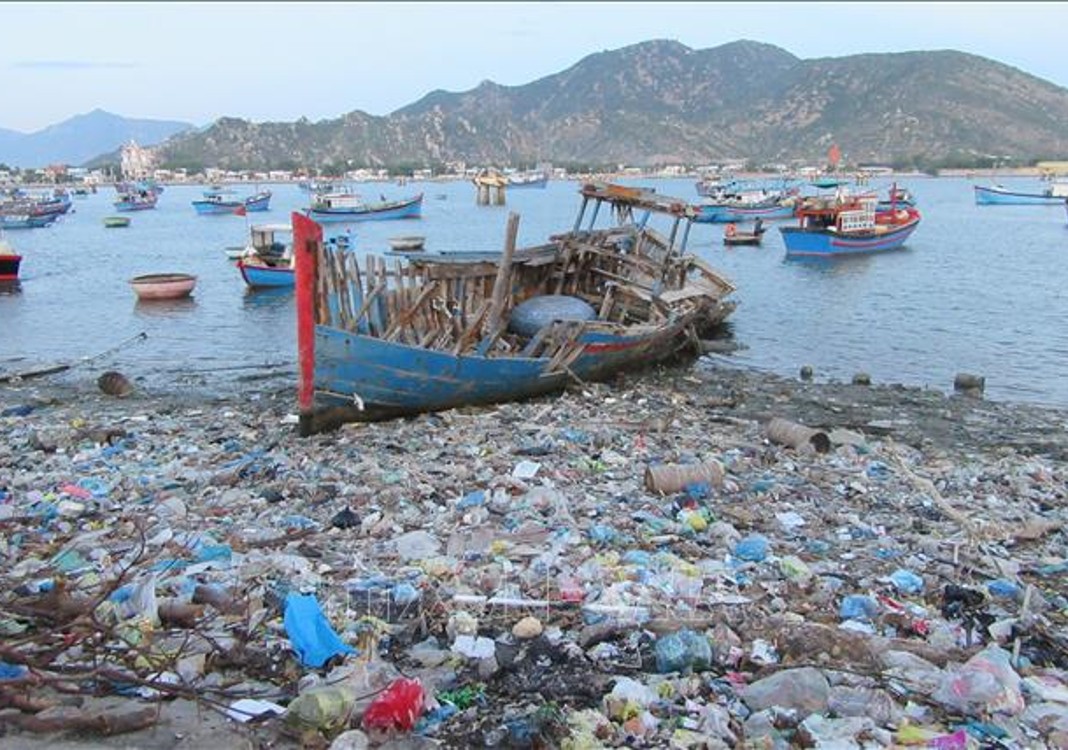HCMC – Some 2.62 million tons of plastics in Vietnam are disposed of per year, that is, not recycled, resulting in a waste of 75% of the material value of plastics, which is equivalent to US$2.2 billion to US$2.9 billion per year.
According to a new study by the International Finance Corporation and the World Bank, as much as 3.9 million tons per year (TPY) of plastics, including Polyethylene Terephthalate (PET), High Density Polyethylene (HDPE), Low Density Polyethylene (LDPE), and Polypropylene (PP), are consumed in Vietnam. Of this, only 1.28 million TPY (33%) gets recycled.
If all the PET, HDPE, LDPE and PP resins used in Vietnam were to be collected and recycled into the most valuable recycled products, the total material value that could theoretically be unlocked from recycling would amount to US$3.4 billion per year.
Currently, only 25% of the total material value of plastics, or US$872 million per year is unlocked, based on a 33% recycling rate and 77% value yield from plastic recycling. This results in the loss of US$2.2 billion to US$2.9 billion per year of potential material value from recycling.
A significant portion of this market opportunity could potentially be captured through public and private sector investments to improve waste management infrastructure, an enabling environment to improve recycling economics and other systemic interventions to address market failures, the “Market Study for Vietnam: Plastics Circularity Opportunities and Barriers” suggested.
Plastics are commonly used in a wide range of industries in Vietnam, including packaging, consumer goods, electronics, automotive, aviation, textiles and agriculture. In 2019, Vietnam’s plastics industry produced 8.89 million tons of products and the industry contributed an estimated US$17.5 billion to the national economy, representing 6.7% of gross domestic product.
Mismanaged plastic waste from land-based sources, especially in the form of single or short-use packaging, generates significant economic and social costs in Vietnam, by reducing the productivity of vital natural systems and clogging urban infrastructure.
Some reasons for the high unrecycled rate of plastics in Vietnam include the lack of sustained local demand for recycled plastics as well as access to financing for recyclers, especially small and medium enterprises, an inconsistent and at-risk supply from the informal sector, heavy reliance on plastic scrap imports, absence of design-for-recycling standards, and a waste management system that prioritizes collection and disposal over recycling.
These challenges have surfaced and amplified during the ongoing Covid-19 pandemic, in the form of declined supply to the recycling industry due to changes in consumption patterns and a significant reduction in demand for recycled products due to low oil prices and the economic slowdown.
The study recommended several interventions and actions to enable Vietnam to unlock additional significant material value through plastic recycling, including increasing waste collection and sorting the efficiency of plastics, creating more data transparency in the plastics market and encouraging the use of recycled content across all major end-use applications.
Besides, the country should improve access to finance for recycling projects and support capacity building, enable the circularity of plastics through the timely development of underlying policies, increase mechanical and chemical recycling capacities and discourage the disposal of plastics, mandate design-for-recycling standards for all plastics, especially packaging, and create industry-specific requirements to help increase plastic waste collection and recycling rates.









